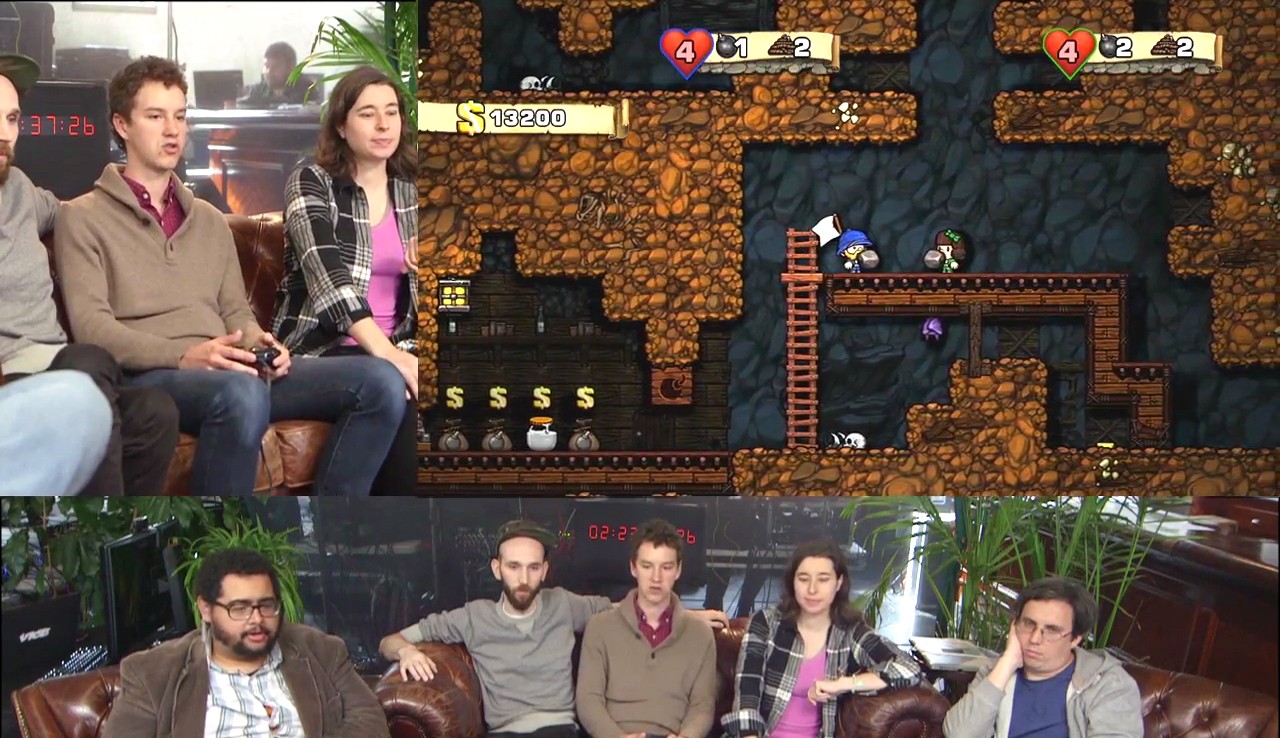Above: Fumito Ueda illustration by Stephen Maurice Graham No spoilers follow for The Last Guardian, but there is a rather big one for Shadow of the Colossus. Don't say we didn't warn you.Fumito Ueda's unexpectedly long journey is finally over. The Last Guardian, the game the director of Shadow of the Colossus and Ico began thinking about as long ago as 2005, is finished, releasing for PlayStation 4 in December. For a decade, this has been Ueda's life, and now, speaking to him in a London hotel, he doesn't know quite how to feel.
Advertisement
"I'm still waiting for that real feeling of being free of this game to sink in, that it's finally finished," he tells me, through a translator. "There are some mixed feelings, right now." He has no idea what he'll do when the game is actually out—there's no talk of parties whatsoever.The original objective for Team Ico, the division of SIE Japan Studio headed by Ueda until his departure from Sony in 2011, was to get The Last Guardian turned around quickly. Shadow of the Colossus had taken over three years from start to finish, and Ueda had no intention of repeating a development process of that duration. And as it happened, he didn't: It took so much longer.
All The Last Guardian screenshots courtesy of Sony Interactive Entertainment UK Ltd
Technology hadn't moved on quickly enough for Ueda to fully realize the game he envisioned. A playable slice ofThe Last Guardianwas readied in 2011, on PlayStation 3, but it wasn't running with anything close to commercial retail-ready slickness. Shuhei Yoshida, the president of Sony Computer Entertainment, intervened: The game would be delayed to target the more powerful PlayStation 4, with the new system's lead architect Mark Cerny on hand to assist the adaptation of the existing code for Sony's next console. Afterwards, it was left to Ueda and his colleagues at the 2014-founded genDESIGN to complete proceedings.
I ask Ueda if he ever wondered if the game would ever get finished. "There were many years without us releasing any new information on the game to the public," he says. "So in terms of what we were saying about it, there was nothing to go on, to change perceptions of what it was about, and where it was at. When something takes this long, a certain level of doubt begins to creep into people's minds. And it's only natural to doubt that what they're making is the right thing to make.
Advertisement
"There have been periods of uncertainty where we wondered if everyone had forgotten about the game, and that was quite scary. But one thing we tried to do is remember back to day one, when everyone decided to make this game that they honestly wanted to play, and remembering the emotion of that time. That's what kept us on course."Playing The Last Guardian today, on PlayStation 4, its roots as a previous-generation project are evident. It's still beautiful—the three scenarios I play through are each superbly atmospheric, and the fantastic beast of the adventure, the mythical, griffin-like Trico, is a wonderfully articulated, expressive AI creation.Visually, Trico delights: its individual feathers catch the wind magnificently, and its big eyes glisten from deep black to fiery red. (Close-up environmental textures, though, vary wildly from acceptable to awful, and the detailing on the (wonderfully animated) boy avatar is far from standards expected today.)There have been periods of uncertainty where we wondered if everyone had forgotten about the game, and that was quite scary. — Fumito Ueda
This creature appears to have absolute free will, sometimes responding immediately to the player's instructions, and at other times taking time to come around to the commands. This can infuriate at first, as you curse its inability to save you from a do-or-die leap, but I soon came around to the understanding that I am not its master, and it is not my pet.
Advertisement
This is a relationship where close observation of each party's behavior is necessary for progress, and many obstacles in this puzzle-platformer will necessitate a little trial and error before they've overcome. (There are no quick-time-event icons demanding that you jump now—it's up to you to read each situation correctly, and hope Trico's attention hasn't wandered).I played The Last Guardian at E3 and initially found the boy's overly twitchy movements a handful, but nothing I couldn't get over after 20 minutes of play. It feels, today, like these have been tweaked ever so slightly—and it's hard indeed to send him careening off a cliff edge unless you really mean it, thanks to some semi-sticky edges that'll have him spinning arms backwards to regain his balance upon reaching them.Still, little is immediately intuitive—a fact reinforced by a standalone controls tutorial video shown to press at the London preview event I attended—and I found myself keeping my thumb firmly on the "hold" button more often than not simply because I didn't know when I was safe from falling, riding atop Trico or hanging from a rocky ledge, and when I was liable to fall to a (mercifully swift) restart. The camera, too, remains occasionally problematic: Finding and sticking to just the right angle to complete an action isn't always simple when you not only have to keep the boy in shot, but Trico too, and nearby columns and walls regularly, albeit temporarily, impede your view.
Advertisement
Article continues after the video below
Watch part one of Waypoint's 72-hour launch stream (and check out more here)
But these prosaic, technical sides of The Last Guardian, even if they were perfect, aren't its significant selling points. Players who fell in love with the mysterious world of 2001's collaborative puzzler Ico and the slow-reveal boss-rush of Shadow of the Colossus four years later have maintained their enthusiasm for this delayed release because of deeper connections with Ueda's only two previous games as director."Re-announcing the game at E3 in 2015 showed us that the excitement was still there, and we were so relieved," Ueda adds. And so much of that respect, that admiration, comes from the companionship that is core to both Ico and SotC, and again to The Last Guardian.
Watch part one of Waypoint's 72-hour launch stream (and check out more here)

But these prosaic, technical sides of The Last Guardian, even if they were perfect, aren't its significant selling points. Players who fell in love with the mysterious world of 2001's collaborative puzzler Ico and the slow-reveal boss-rush of Shadow of the Colossus four years later have maintained their enthusiasm for this delayed release because of deeper connections with Ueda's only two previous games as director."Re-announcing the game at E3 in 2015 showed us that the excitement was still there, and we were so relieved," Ueda adds. And so much of that respect, that admiration, comes from the companionship that is core to both Ico and SotC, and again to The Last Guardian.
Ico was a story about a boy meeting a girl and the pair of them working together—well, Yorda didn't help a great deal, but she was there—to escape a castle of traps and terrors. The way the pair held hands, how they sat down together to rest (and save the game), how the story wouldn't move forwards until both characters had made it to the same spot: This was co-op gaming with a heart, a synthesized soul that'd never really been seen before—even though it wasn't even really a co-op game. SotC was both about a boy and girl, and a boy and his horse—and, bloody hell, the moment in the game when Wander loses the latter is just completely crushing.
Advertisement
"I always ask myself the question, because I create video games: What can only be done in a video game?" Ueda explains. "The games that I make, they have these situations with two characters—and that's my response to that question. It's my only response that I have, for now. When you have one character that's created by a program, that acts on its own will, you simply can't do that in a film, or a book. The other character is placed there to navigate this one through the game.""The question is one of design, but it touches on narrative too. And that's the answer that I reach, when thinking about what I can do on a video game, and only on a video game. If I'd come up with other solutions, I'd have done them. But at this point of time, after thinking long and hard, that's my only response. Which is why you have this similarity between the three games."These relationships resonated with players, as will the one between The Last Guardian's human and horned beast. It's also rarely explicit who the "hero" is—Wander could easily be examined as the evil antagonist of SotC, and it's interesting, when playing The Last Guardian, that the game, when left idle, shifts its camera to focus on whatever Trico is doing, leaving the boy behind. It might be that it's the animal, not the human, who's ultimately the most important of the pair to the as-yet-unclear plot.One part of me will think about delivering a game in the same style as I've always done, while another will feel that I want to betray what I've done before. — Fumito Ueda
Advertisement
These bonds have become Ueda trademarks, for want of a better word—but he tells me that pursuing this direction, the one that's won him so many fans, carries with it great pressure."If people look at my games, and identify a unique style in them as a style in itself, that's something that I'm very grateful for," he says. "But at the same time, it adds a sense of pressure when trying to make something new. One part of me will think about delivering a game in the same style as I've always done, while another will feel that I want to betray what I've done before, and come up with something completely different."
Follow Mike on Twitter. The Last Guardian is released on December the 6th in the US and Japan, and the next day in the UK.
Ueda has spoken elsewhere, too—at Eurogamer, for example—about wanting to embark on a wholly different direction from what he's done before. I wish I had longer with him to investigate what these fresh ideas might be, but he's got a tight promo schedule to stick to, and unlike the development of The Last Guardian, it has to run on time. And my time is up.I come away with the distinct impression that this has been a draining process for Ueda, promotional responsibilities includes, and that he now feels uncertain of what his next move should be. I suspect he'll take some time off to reflect on his achievements with this unique trilogy of video games, as he certainly deserves to; and I hope that however and whenever he returns to what he loves, the project won't be short of singular style. The Last Guardian is absolutely a Ueda game, in the spirit of its predecessors. Which will be enough, for many, for its more irksome elements to be overlooked.Related: Why I'm Looking Forward to More 'Just Good Friends' Relationships in Video Games
Follow Mike on Twitter. The Last Guardian is released on December the 6th in the US and Japan, and the next day in the UK.
